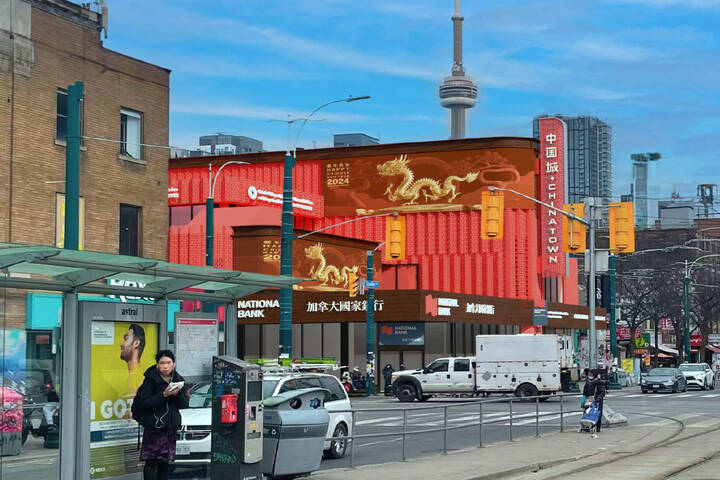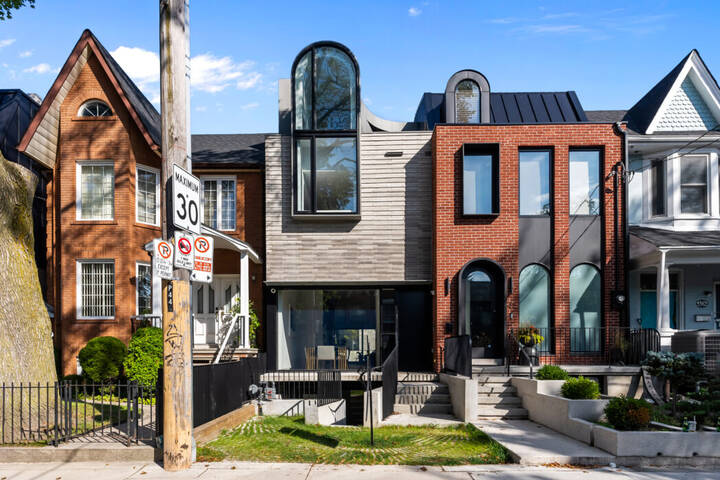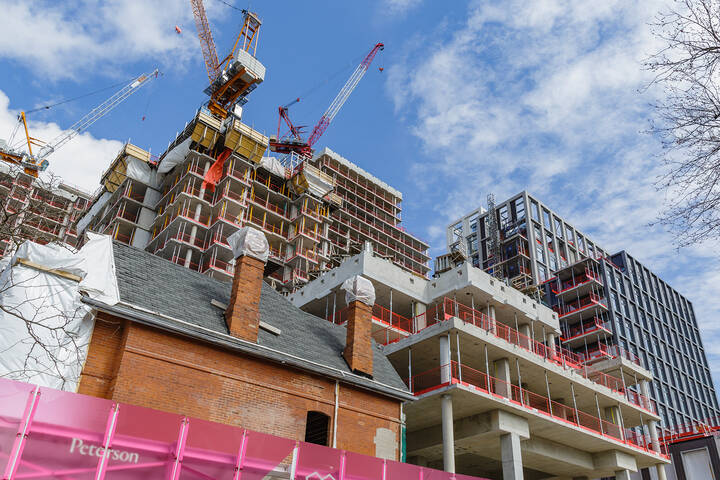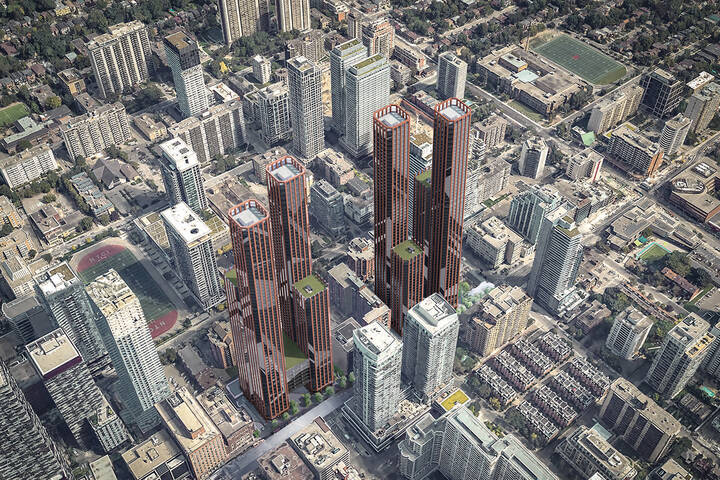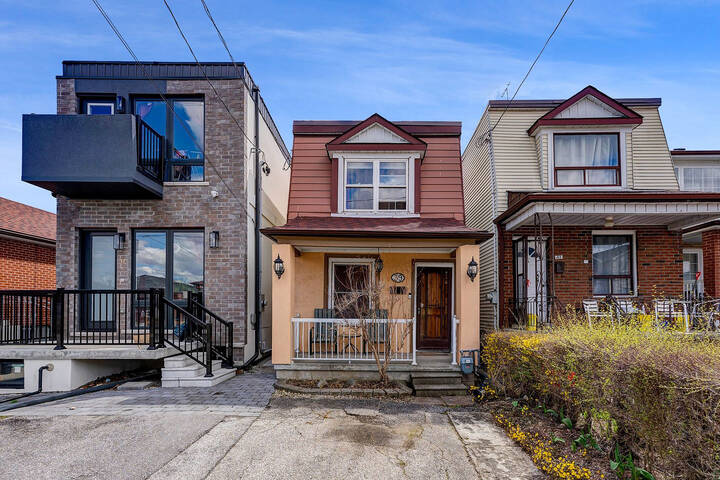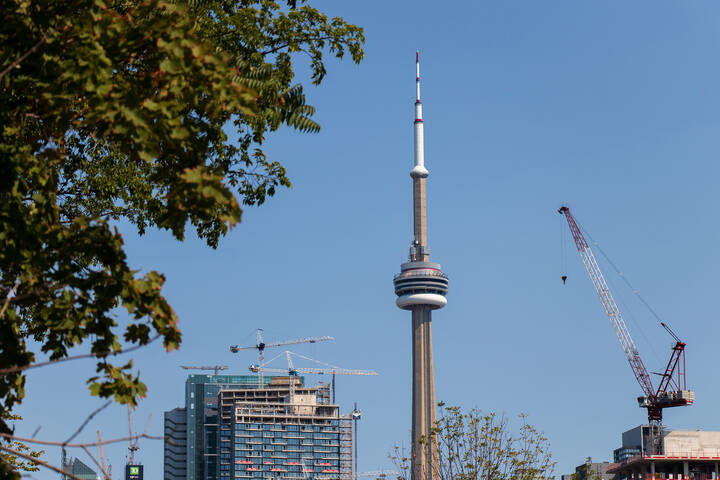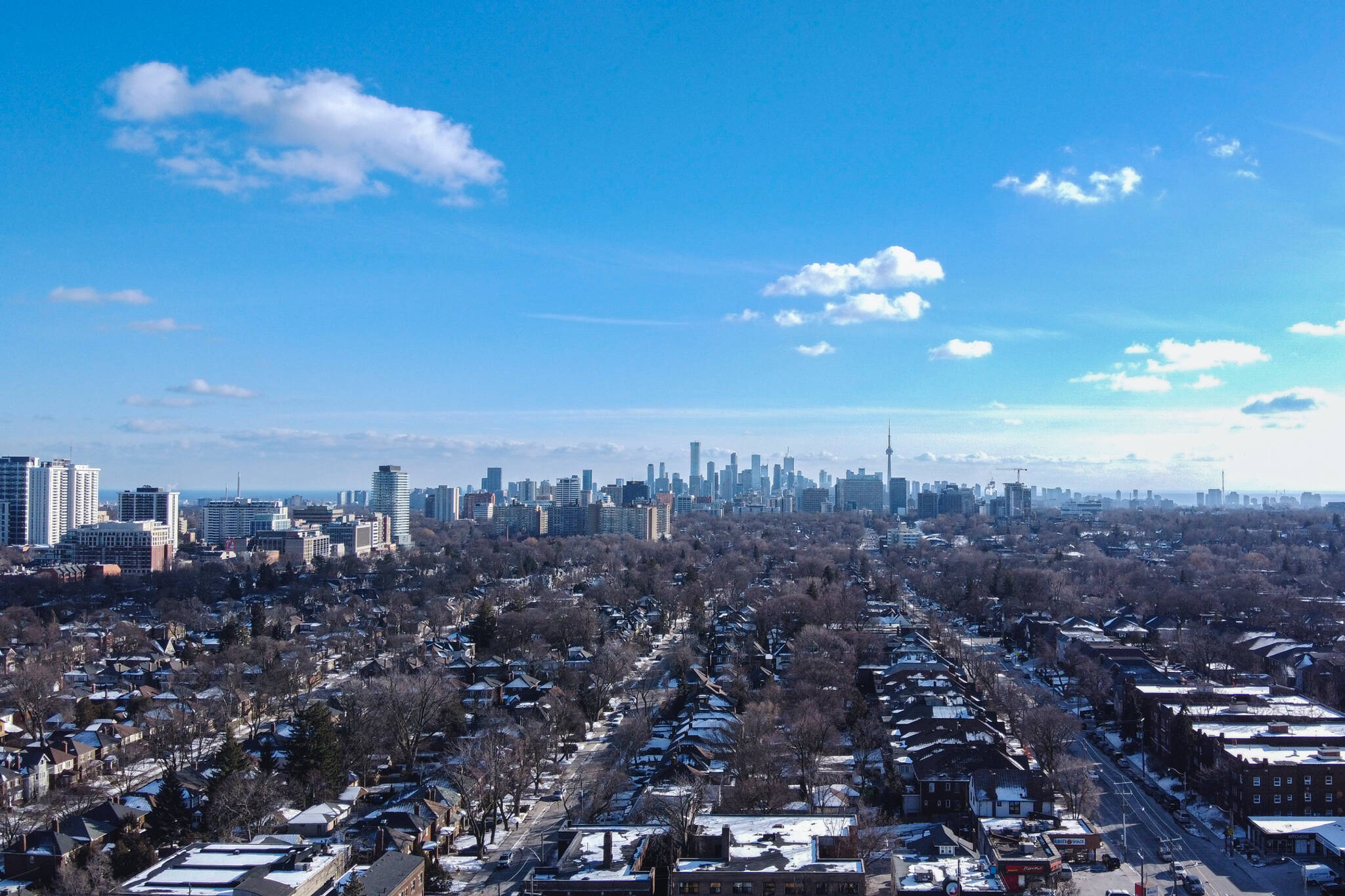
Young people way more likely to experience severe housing unaffordability in Toronto
Finding reasonable and affordable housing in Toronto has become increasingly difficult, particularly for younger people.
Toronto's housing market has made it more difficult for millennials to purchase a home in the city — unless they have help from family. But a new study from the Wellesley Institute shows just how drastically housing affordability has changed in the last 30 years.
The Widening inequities: Long term affordability in the Toronto Census Metropolitan Area 1991-2016 study examined long-term population-level housing affordability challenges and trends using Statistics Canada Research Data Centre at the University of Toronto from 1991, 1996, 2001, 2006, and 2016 censuses and the 2011 National Household Survey for the Toronto CMA.
The study authors Scott Leon and James Iveniuk found more people are living with moderately or severely unaffordable housing costs. Unaffordable housing is defined as 30 to 49 per cent of income, and severely unaffordable is defined as 50 per cent or more of income.
The per cent of Toronto region households with unaffordable housing costs has increased from 23 per cent of households in 1991 to 29 per cent of households in 2016.
In 2016, only one in four first quintile households (median income of $25,000) and two in four second quintile households ($50,000) had affordable housing costs.
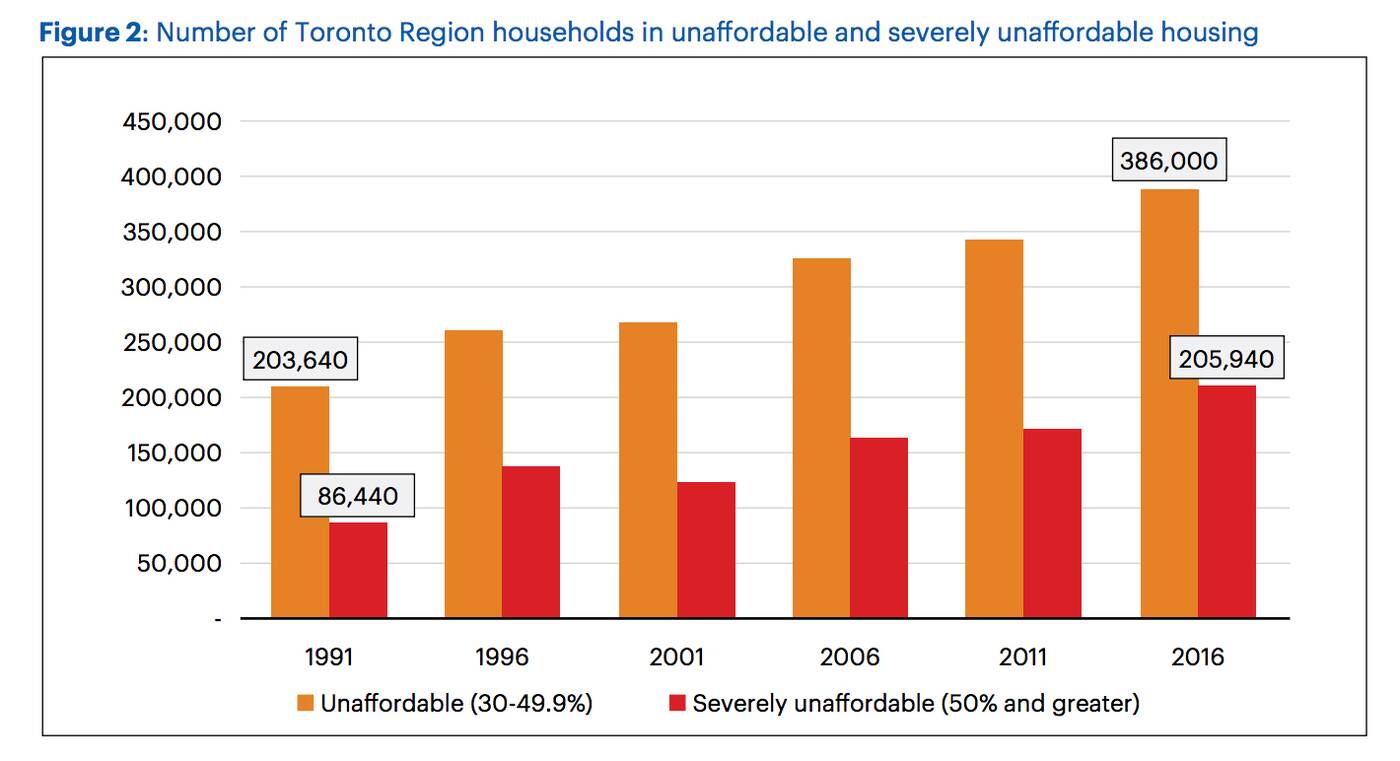
Wellesley Institute graph
Racialized people in the Toronto region have consistently struggled across the 25-year study period with significantly higher rates of housing unaffordability, the study found.
"The rate of unaffordable or severely unaffordable housing has persistently been roughly ten per cent higher for South Asian, Black and Chinese households compared to non-racialized households," the study notes.
Younger people also have more housing affordability challenges.
Only 37 per cent of households led by people under the age of 25 had affordable housing costs in 2016, down from 59 per cent in 1991.
Affordability has also deteriorated faster for renter households (-14 per cent) than it has for owner households (-4 per cent).
The study has several suggestions to improve the situation in the Toronto area including increasing the supply of social, affordable, and market housing through investment and reduced barriers to construction.
They also suggest rent benefits and income support programs.
"As the Toronto region builds back from the pandemic and recession, there is an opportunity to establish a new normal for housing affordability," the study notes. "This new normal should be a departure from the declining housing affordability and persistent and widening inequities between groups."
Latest Videos
Latest Videos
Join the conversation Load comments

